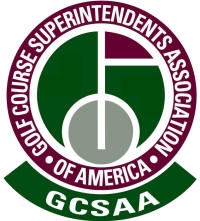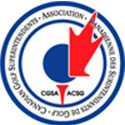Finding the Right Fit
Published: Golf Course Management Magazine
Year: January 2013
Today’s golf course maintenance model looks very different from yesterday’s. At many facilities, members’ demands have not changed, but most of our maintenance practices have. We continue to do more with less by looking for ways to be more efficient, spend less money and still ensure our members are proud of their facility.
The importance and value of staff positions at the golf course maintenance facility have been discussed at length. But we should also remember that the person filling the position must be able to deliver at the level the club requires. If he or she isn’t capable, then that position has a different value. We advocate for higher salaries for these positions; but are we paying for the position or for the person filling it? Our industry has traditionally based these salaries more on the “going rate” for a particular geographic area and less on the expertise of the candidate. That can lead to the wrong fit for the facility as well as the equipment manager.
Value added
This is not another article about the low salaries of equipment managers. Its purpose is to shed light on the simple fact that not all people produce the same results. Therefore, compensation should be based on the qualifications of the individual for the specific position requirements and not on the performance of someone else in the same position at a facility down the road.
Over the years, the industry has conducted many salary and benefits surveys of various golf course positions. Do they really tell you anything about the people you hire? How do you know what their value will be to the operation?
With equipment managers, the skill sets are all over the board. It’s important for superintendents to evaluate their situations and determine the position they need, the salary they can afford and the type of person who will benefit the club most.
For example, consider the superintendent who needs to fill an equipment manager position and has older equipment and a shop in disarray. He wants someone to get everything back on track. He interviews the equipment manager from the top golf course in the area, whose experience involves running a new shop with leased equipment that is continually replaced. Although his equipment was very well maintained and he had the best turf conditions in the area, this equipment manager has no experience turning around an old fleet and organizing a facility.
There is also the other end of the spectrum — golf facilities that have good equipment managers, but don’t pay them well and end up losing them. Those facilities don’t realize how hard it is to find a good guy until they’ve lost one. Successful businesses know that when they have valuable employees, it’s important to find a way to keep them. At golf courses, retaining a good equipment manager will save time and money in the long run, and superintendents won’t run the risk of compromising their standards of golf course care.
There are a lot of equipment managers working at middle- to lower-end clubs who wonder what they can do to get their foot in the door at a big club. Many are just looking for an opportunity to show people what they can do at the next level. The good thing about these individuals is that, often, they have learned how to operate on small budgets. Also, they generally have more experience with diving deep into the machines because they’ve had to keep them for so long. What makes it tough is that our business is many times about relationships and who you know. In general, technicians do not have a strong record of networking with peers, much less with others in the industry. Fortunately, this is beginning to change.
What are superintendents looking for?
In this Q&A, three superintendents — Tim Hiers, CGCS at The Old Collier Golf Club in Naples, Fla.; John Cunningham, CGCS at Bellerive Country Club in St. Louis, Mo.; and Lukus Harvey, GCSAA Class A member at PGA National Resort in Palm Beach Gardens, Fla. — share their insights and tips to help equipment managers who want to advance in their careers.
Knowing that every course’s budget and requirements are different, how do you determine the value, or salary, of your equipment manager position?
Hiers: I am looking for experience, attitude and aptitude.
Cunningham: The same as other positions: cost of living in that area, experience and technical aptitude necessary, work load, staffing levels, quantity of equipment being maintained and type of club.
Harvey: In terms of value, my equipment manager is priceless. I simply cannot be successful without him. As for the actual salary, that is always tough as most GMs I have worked under always want to use a local market survey as the guide. In most cases, that is how we have determined salaries.
When you hire an equipment manager, what values are important to you?
Hiers: Experience, ability to improvise, ability to diagnose problems, dependability, patience and personality.
Cunningham: Organizational skills are right at the top of my list. Drive and/or work ethic are also very important. A very good disposition might be an equipment manager’s best quality to have, due to the many demands.
Harvey: Honesty, integrity and commitment — sounds simple, but if you have those three it is hard not to be successful. As for commitment, that has to be to your trade especially, and you have to be very willing to put in time for continuing education and training as the equipment, technology and course conditions evolve.
Recently, technicians have been receiving more recognition with various awards. Do you believe the industry is now realizing the value of equipment managers, or do you believe technicians are becoming more advanced and in turn gaining recognition?
Hiers: I feel that both of these are the reason.
Cunningham: A bit of both — it’s much like what GCSAA has done for the superintendents. The efforts of the IGCEMA (International Golf Course Equipment Managers Association) have helped shine a light on the professionalism and importance of the equipment manager. Also, the equipment managers have evolved with the business. As course-conditioning expectations have increased, turf equipment has gotten better. The expectation and responsibility of the equipment manager has definitely increased. They have become a very important part of the management team.
Harvey: I think it is both. As far as becoming more advanced, the answer is yes. But that is not the case all across the board. The cream of the crop are advancing and really growing with the times. Unfortunately for superintendents and the industry, that is a small percentage of technicians. If that were the case for, say, 80 percent, then we would see exponential growth and a lot of superintendents’ lives would be getting easier. However, I feel because of this minority who are dedicating a lot of time and energy to their trade and getting the word out there, the long overdue recognition is starting to come in.
In your experience visiting golf courses and talking with other superintendents,do you believe there is a larger pool of highly qualified equipment managers or a smaller pool?
Hiers: I am not sure, but I would think it is larger than in years past because of all the courses built since the early ’90s.
Cunningham: I’m not sure. But in posting a few positions over the past few years, I have definitely had a number of very qualified professionals to choose from.
Harvey: Yes, the pool is larger. But it is nowhere near big enough to support the major demand out there. Like I’ve said before, the best in this field are light years above the rest. Unfortunately, the gap is just too big right now.
What advice would you give to equipment managers who are looking to move up in our industry and land that “big job?”
Hiers: Have a good attitude; always strive to learn and better yourself; participate in the local technicians association; visit other operations several times yearly to learn different techniques, ideas or methods; keep a clean shop; be strong on preventive maintenance; read technical magazines; and always have small projects to keep improving your shop and operations.
Cunningham: Be organized; document processes and procedures with pictures; make an effort to understand the agronomic side of the business; and be involved in local and national equipment manager organizations.
Harvey: Right now they need to have the formal education and stay extremely committed to the continuing education and training. Last but most important, they need to train and grow underneath the top of their field. Again, with the gap being so large between the top performers and everyone else, I can’t emphasize how important it is to learn from the best.
What should you look for?
We often hear about the technician who left a facility for another one down the road just to make one more dollar per hour. Money may be at the top of the list when we talk about value, but it’s not always the defining reason why someone takes a position and stays with it. Equipment managers need to look at all aspects of a facility and the available position before deciding whether to make a change. It’s critical to evaluate your current situation and determine the best course of action — personally and professionally.
For technicians, here are some important questions to ask yourself before deciding to take a new position:
Will I get the same benefits?
Benefits mean a lot these days. Health insurance may cost as much as $1,000 a month for a family. Insurance can be a huge plus, and the lack of it can be an even bigger negative when you are considering a new position. Make sure you know the costs of insurance before you accept.
Will I be working more hours?
Quality of life is always a consideration in this business. The hours you are expected to work can take a huge toll on your family life. It’s important to clarify expectations up front so there are no surprises once you get there.
Is this position a step up?
When superintendents look over résumés, they will note how long the applicants stayed at previous facilities and whether changes in positions were a step up. These factors will play a big part in determining whether you are offered a position. Most higher-end clubs are looking for someone who is willing to stay for a while. If you have a record of staying at a club for a year and then moving on, you may have a tough time landing a top position.
Does the facility have the staffing level it needs to get the job done?
In your evaluation of the position during the interview process, it’s important to learn as much as you can about the operation. The big question to ask is the staffing level — take a look at the operation and make sure the staffing is sufficient for the work you are being tasked to do.
Is the budget in line with the situation?
People always ask if it’s OK to probe about the facility’s budget. It is acceptable to inquire about the budget for the area for which you’ll be responsible. You need to make sure the expectations are realistic and the fleet of equipment can get the job done within the amount of money budgeted. If not, there’s no sense taking the position.
Are you willing to start over and prove yourself again?
In most cases, when you start a new position you are meeting a staff for the first time. As the new employee, you will be watched to see how good you are and if you’ll fit the bill at that operation. Keep in mind that what you did previously has no effect on the new position. You’ll be starting from scratch.
Is the club in a good financial situation?
With the recent issues in the economy and overall reduction in rounds of golf, many facilities have been struggling. Gain an understanding of the facility’s financial situation so you are prepared to live with any changes that could occur.
Can I improve it?
One major factor to evaluate before deciding on a position is whether you can make an impact. It’s very hard to go into an operation that you believe is great and then make it better. However, you want to identify key things you can do to improve the operation. This will give you a strong and positive mindset from the beginning. All of these questions should be answered before you make the big decision to leave your current employment. A higher salary is always tempting, but a move can change your life drastically. Make sure you have all the information and are fully prepared for what’s to come.
The final take
Our industry has some very talented individuals who seem to do miraculous things with the budget, tools and staff they are given. While often their efforts go unnoticed by those who have come to expect it, facilities soon recognize the value of those efforts once they’ve lost a skilled equipment manager. The big question is this: In an industry in which proper planning and decision making has such an enormous effect on operations and financial stability, why is the quality of new hires often sacrificed to save a few dollars? At some point the golf course industry has to realize that it’s the people who make the biggest difference.














0 Comments
No Comments Yet!
You can be first to comment this post!